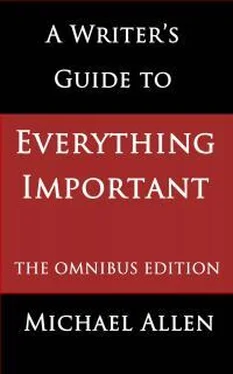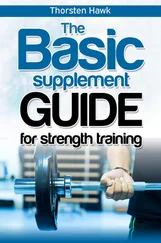At this stage I may as well declare a strong preference for the latter: planning books and stories in some detail; but this is not a book about narrative technique. If you want one, try my earlier books, How to Write a Short Story that Works , and How to Write a Novel that Works.
The third and final element in writing fiction is the writer’s style: her manner of using words in the final version of the story.
Of these three elements, Uzzell believed – as I do – that content was more important than technique. And style is perhaps the least important factor, though by no means negligible in its contribution to the overall effect. But all three elements should be under the writer’s conscious control.
Yes, you can certainly write a story which depends on an idea which came to you out of the blue; I’ve had many such ideas come my way over the years – some of them excellent, some not so wonderful. And yes, you can certainly organise and manipulate your basic idea into a potentially effective story. And I have dealt with those issues in the books referred to above. But this book is about how to improve and polish your style.
PART 2: Identifying your strengths and weaknesses
5. Self-assessment
This section makes use of some material that I have previously included in my books on writing short stories and novels. But if you’ve read it before in that context, it will do no harm whatever to read it again here.
Let us consider what skills you need to be a reasonably good fiction writer. What are they?
Well, some experience of life wouldn’t hurt. Just having read thousands of books, as a teenager, is no substitute.
However, there is one overwhelming requirement. In times past it was an absolutely essential requirement, but in the digital age you may be able (just) to manage without it. But first let’s consider what it is.
The number-one requirement for a novelist, or any professional writer, is that you should be able to communicate fluently in writing, in the English language.
Could I, for instance, write a novel in French? Hell no. I might order a meal in French, but I certainly can’t write a novel.
So, the novelist needs an unusually good grasp of the English language. Ideally you need to be able to spell and punctuate correctly. Every time. Some knowledge of figures of speech is an asset. I’m not sure that I still know what zeugma and litotes are (though I once did, when I taught English), but I certainly know what similes and metaphors are, and their importance. I know the difference between a semi-colon and a colon, and between an adjective and an adverb.
Of course, of course, the impatient among you will be muttering. Everyone knows that sort of thing.
Well, they did, once upon a time. But not any more.
I wrote about this problem at length in my book How to Write a Short Story that Works . I can’t speak for other English-speaking countries, but in the UK a huge problem has developed over the last half century. The plain fact is that English teaching has deteriorated sharply in English schools, and the evidence is all around us.
What evidence? Well, here are two quotes from middle-aged ladies, both involved in the communications business.
On 17 November 2002, Minette Marrin wrote an article in The Times about British universities. ‘Over the past 15 years,’ she said, ‘I’ve listened to despairing accounts – from friends who teach even at good universities – of how bad things have become. Many students arrive unable to write essays, or even to construct a paragraph.’
The following day, in the same newspaper, the forthright Ann Widdecombe remarked that she lived in a world ‘in which linguistic anarchy prevails, where children are no longer taught the function of a verb, and where bright, enthusiastic graduates produce a jumble of words, randomly punctuated, and call it a letter.’
If you, dear Reader, live in England (home of the English language) and are of retirement age, and if you went to an old-fashioned grammar school, or an independent school, and if you were in the so-called ‘arts’ stream – then there is a fighting chance that you might have been taught sufficiently well to be able to write prose which will not make an experienced publisher’s editor wince because of its elementary errors.
But if you are 20 years old, and attended your local comprehensive, it is more than likely that you will have been taught English by someone who was, frankly, incapable of writing a respectable sentence himself. The result will show. Believe me, it will show.
None of this is your fault, of course, and your position is not altogether hopeless. But neither is it promising. For the moment, at least, you are a person who wants to be a champion high-jumper but is only four feet six inches tall and weighs twelve stone (168 lbs). You are like a trumpeter with one lung; a golfer with one arm; a pianist whose fingers got caught in the car door.
If you want to take a short test to see how well you actually have been educated (or have educated yourself), proceed to section 6 below. There you will find a few questions which allow you to assess the state of your vocabulary, spelling, grasp of punctuation, and elementary grammar. But here’s a short cut. You can find out how sensitive to nuance you are by reading the paragraphs below.
A UK newspaper recently ran the following headline:
CANNABIS GROWERS SAY POLICE MAKE BAD NEIGHBOURS
That headline might mean precisely what it says. It is possible that a group of cannabis growers made a public statement to the effect that, if you grow your own cannabis, it’s not a good idea to live next door to a police officer.
On the other hand, I think it more likely that the newspaper was reporting a warning, issued by the police, that if you suspect that your neighbours have a secret greenhouse up in their loft, it might be a good idea to tip off the forces of law and order.
And if you really can’t see how a couple of commas would make all the difference in conveying those two rather different ideas, then you are in trouble.
I accept – yes, yes, I really do accept – that all the above makes me sound like a ghastly intellectual snob. And I repeat: it’s not your fault that you’ve been badly taught. But at the end of the day, you can only have a halfway decent career as a writer if you can write at least halfway decent English. You need to know how to say what you mean to say, and how to say it in a way which will hold your reader to the page.
That having been said… this is probably the place to state that there are some ways to reduce the effect of your lack of knowledge. The first is to employ a professional editor to go through your book, when it’s finished. Professional editors who are really skilled at the job are not easy to find – for all the reasons referred to above – and when you find one she is likely to be expensive.
The other grain of hope lies in the fact that a new kind of reader has emerged in the digital age. Various surveys over the past few decades suggest that (in England) only about 50 per cent of adults ever read a novel anyway. The other 50 per cent, the non-book readers so to speak, they may read newspapers and magazines, but books…? Nah. Too long. Too complicated.
What these non-book readers do have, however, is an easily portable computer. And smartphones and tablets are increasingly being used for reading narrative. It is my conclusion that this is producing a new class of reader – what you might call the non-reading readers.
Such non-readers are really not at all fussy about spelling and punctuation because they were never taught much of that stuff at school, never got the hang of it anyway, and wouldn’t know a split infinitive if you opened a can of beer with it. And what the new readers are interested in is stories. They want to read stories which are reasonably short, not too demanding intellectually, and which grip the imagination.
Читать дальше












